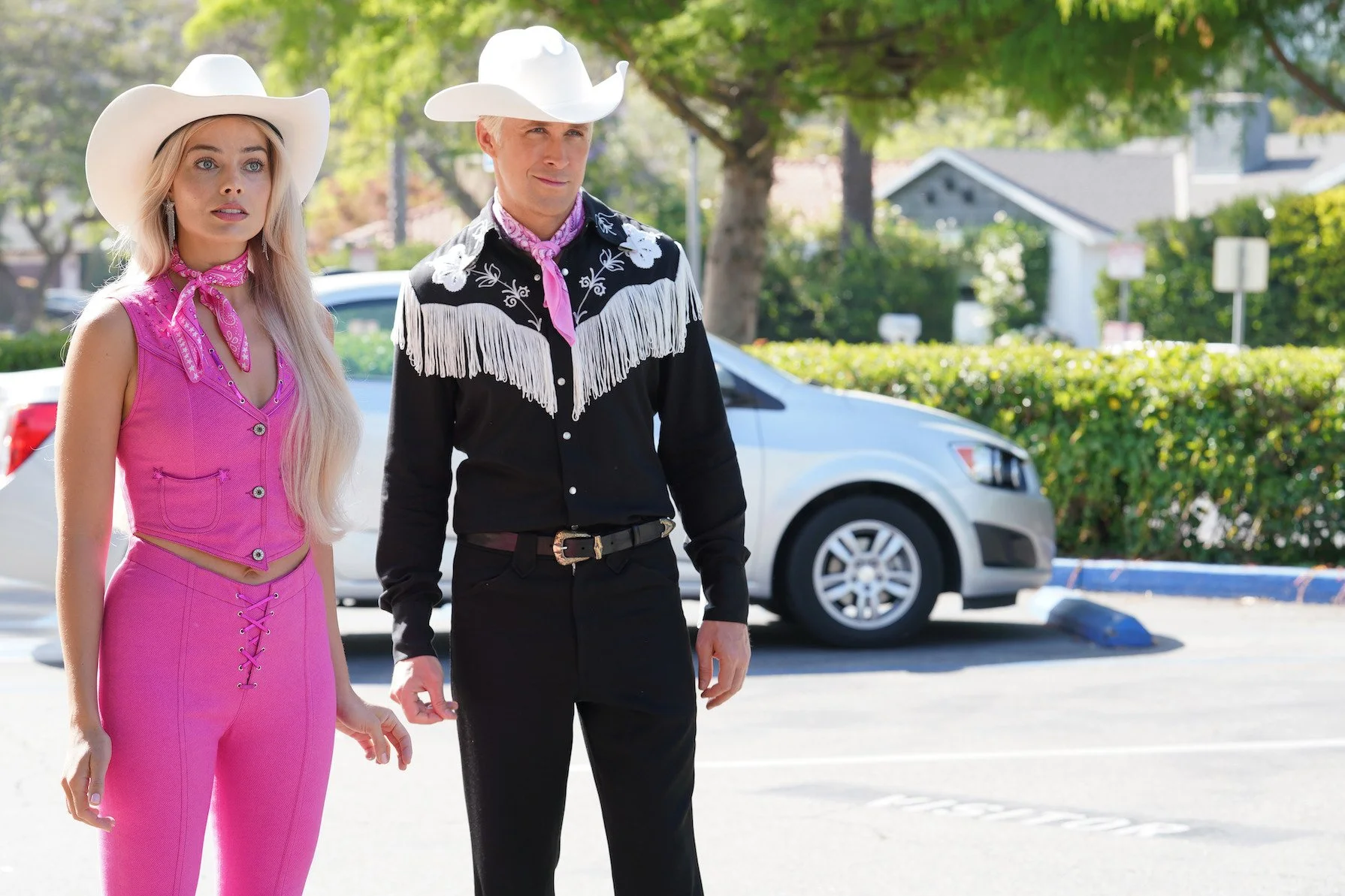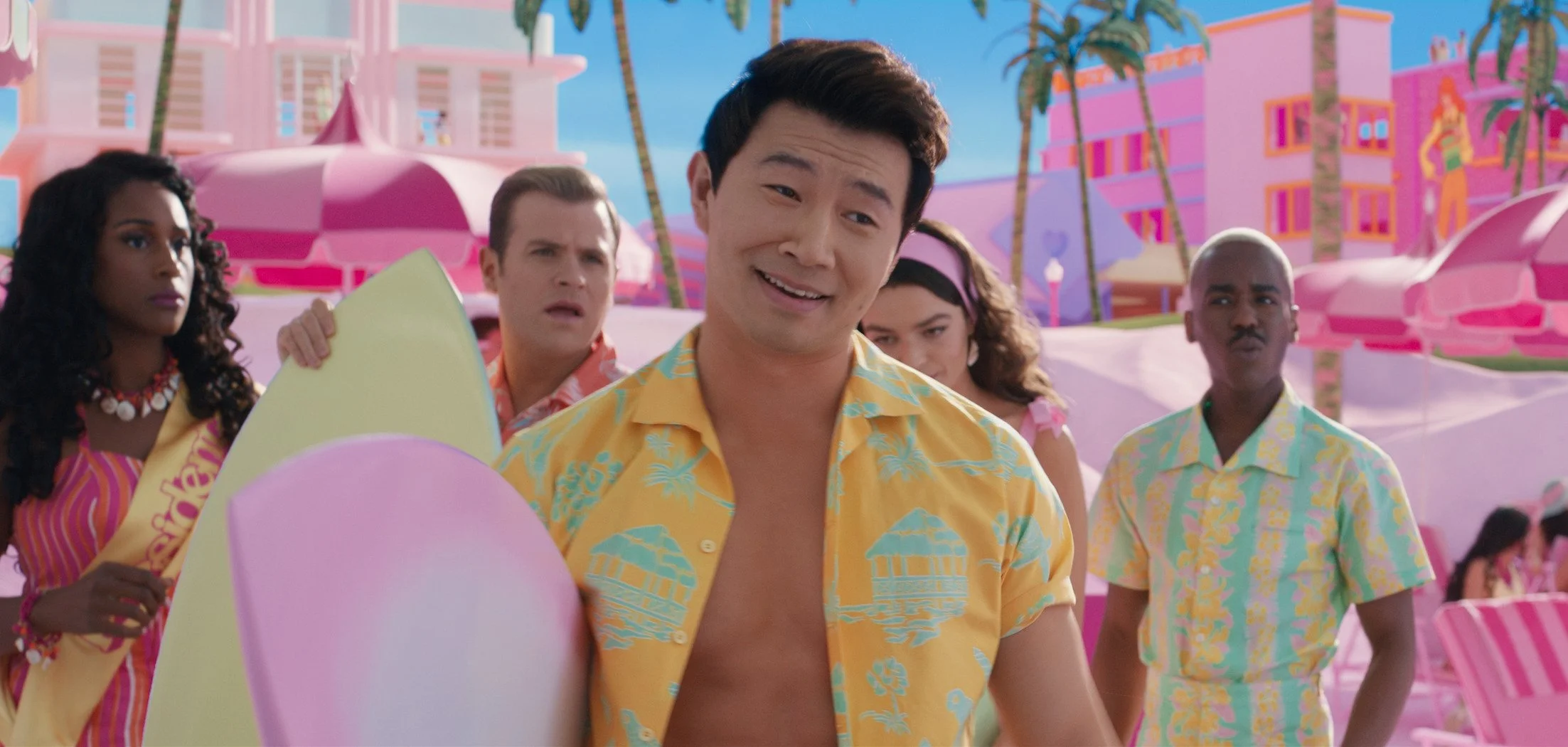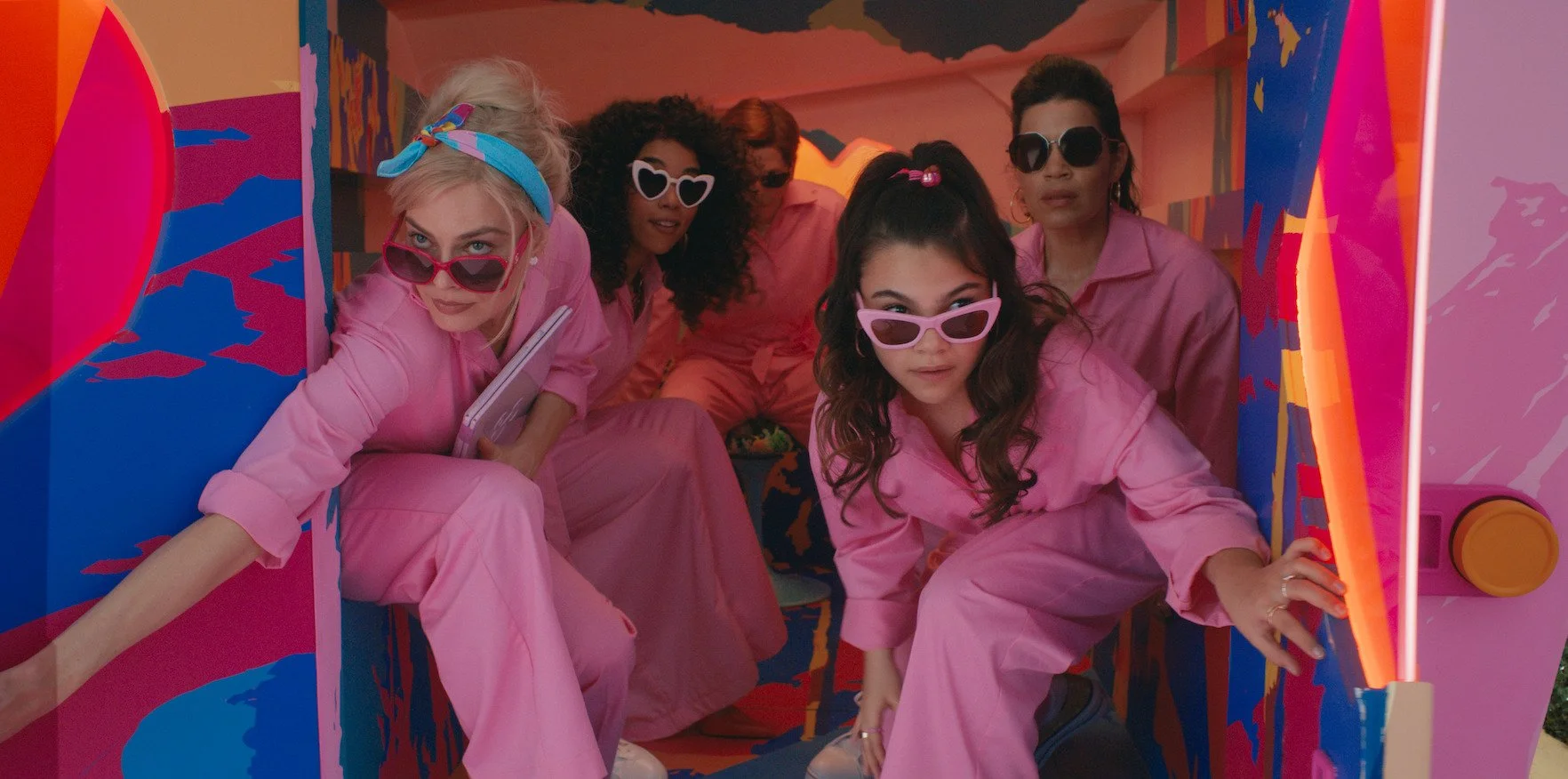We Got the Pink
Mattel makes its move into Hasbro/Marvel territory with ‘Barbie’. Call it subversive-lite.
Barbie
Director: Greta Gerwig • Writers: Greta Gerwig, Noah Baumbach
Starring: Margot Robbie, Ryan Gosling, America Ferrera, Kate McKinnon, Michael Cera, Ariana Greenblatt, Issa Rae, Rhea Perlman, Will Ferrell, Helen Mirren
USA • 1hr 54mins
Opens Hong Kong July 20 • IIA
Grade: B
When I was a kid, I had a special edition Supersize Barbie. It was at least 30, maybe 45 centimetres tall and was stiff as a board. But like one of the kids in director Greta Gerwig’s Barbie, I got bored with it and cut all the hair off, put black magic marker around her eyes, “dyed” her hair and wrapped her in hockey tape. It was my own Dominatrix Barbie. True story.
Which speaks to a little to one of the thematic threads of Gerwig and co-writer Noah Baumbach’s overstuffed cotton candy adventure comedy-slash-Mattel ad, one that defends Barbie, the doll created by messy Mattel co-founder Ruth Handler in 1959, as an invaluable outlet for the imaginations of little girls around the world. And probably little boys, but we don’t go there. The potential was here for Barbie to be a hot mess, given the primary creatives involved are insufferable hipster mumblecore duo of Gerwig (Lady Bird) and Baumbach (Marriage Story). Gerwig has always come off as humourless, but Barbie’s a bright, spry, exploration of the double-edge sword of modern womanhood and an old-school celebration of ya-ya sisterhood – and it’s finely attuned to its inherent “toy ad” image (looking at you, every Transformers film ever). Get ready for right-wing mouth-breathers and pearl-clutchers to rail against Barbie’s on-the-nose feminism.
Barbie has had plenty of opportunity to step into a cultural shitstorm in its 64 years. The “Math is hard!” (actually, it was “Math class is tough!”) Barbie of the 1990s was a major gaffe. Then there was Oreo, the Black Barbie (!), in 2001 (!!). The doll has been cited as a cause of body dysmorphia and as a source for unrealistic physical standards, and it’s become a slanderous label. No woman want to be called a walking Barbie doll. Barbie gets that.
So it winds those ideas into the narrative about a Mattel staffer, Gloria (America Ferrera), at a personal crisis point who starts playing with her Barbie again. If ever there was a place for super white actors, it’s Barbie. Gloria’s existential crisis triggers one in Stereotypical Barbie (Margot Robbie, perfect), whose routine is messed with and whose non-existent milk is rotten. She can’t float downstairs in her dream house! She muddles through her pink fever dream Oceanside day, eventually meeting up with her useless, purpose-built boyfriend Ken (Ryan Gosling, also perfect), and all the other superfluous Kens, as she lives her carefree life in Barbieland, where doctors, lawyers, Nobel Laureates, and judges are all Barbies. But when Weird Barbie (Kate McKinnon) sends her to the Real World to fix her glitches, and Ken tags along, Barbie is confronted with the reality of her influence. Distraught and with her core identity in shambles, she heads back to the collapsing Barbieland, where Ken’s making some changes.
The devil’s in the details in Barbie, and with an assist from DOP Rodrigo Prieto (The Irishman) production designer Sarah Greenwood (live action Beauty and the Beast), so is the comedy and commentary. The idea of “letting the women be in charge” as a way towards a social utopia is a balloon Barbie lets the air out of. It’s facile – Ken is devalued and unvoiced, so absolute power blah blah – but point taken. But Barbie can be very funny – Ken’s whirlwind job interviews are hilarious, as is what might be the best use of Matchbox Twenty ever – and whip smart, but it’s not as subversive as it thinks it is; the film was, after all, produced by fucking Mattel, which wants to be the next Marvel.
That shows in the tension in how Barbie acknowledges the doll’s thorny legacy, but also kind of brushes it off by setting a vaguely nostalgic tone. Nostalgic, it must be said, for a toy that still exists. It sports the sheen of current feminism by including the likes of Insecure’s Issa Rae as President Barbie (a standout), and Promising Young Woman director Emerald Fennell as discontinued pregnant Barbie Midge. But Barbie’s points about the exhausting existence under the patriarchy – and that word is actually used – are text; there’s no subtlety, the film’s politics are hardly incendiary. There are gentle swipes at Mattel Inc., and Helen Mirren’s pitch-perfect snarky voice-over narration is frequently a high point, and if we’re honest the Ken story is stronger. Yikes. All Gerwig’s preferred bugbears are present: Gloria has a dicey relationship with her daughter Sasha (Ariana Greenblatt, 65), and in end it’s about female agency and self-determination. But Gerwig has a corporate overlord to answer to, with stock reporting to consider. Ultimately, it shows. Barbie is fun, it’s charming bubble gum entertainment with some wry observations, but it’s not a gamechanger. Leaving just one question: Who wins the “Barbenheimer” battle? — DEK
*Barbie was reviewed during the 2023 WGA and SAG-AFTRA strikes. Without the labour of the writers and actors currently on strike, it wouldn't exist.



